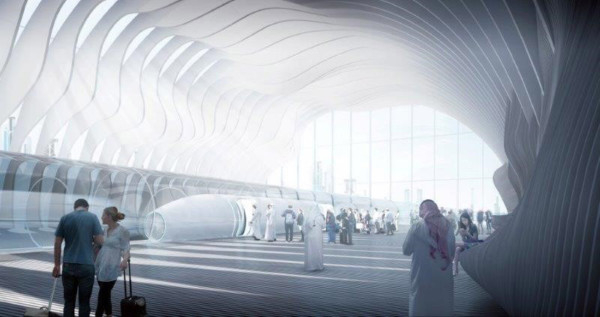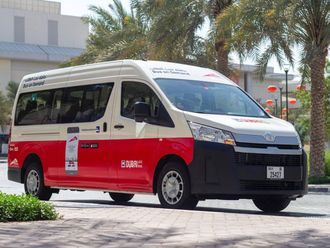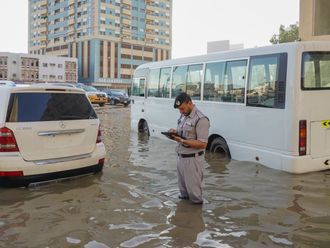
Abu Dhabi: Travelling from Abu Dhabi to Al Ain takes about two hours at present, but the possibility of having a superfast transportation system that can reduce the travel time to about 12 minutes will soon be studied, the Department of Municipal Affairs and Transport (DMAT) announced on Monday.
The emirate of Abu Dhabi’s transport sector regulator on Monday signed an agreement to undertake a feasibility study for the new system with Hyperloop Transportation Technologies (Hyperloop TT).
“Through this agreement, we aim to study the feasibility of developing [one] of the first Hyperloop systems, an advanced transportation technology that is expected to reach a top speed of 1,200 kilometres per hour when completed. We hope to take advantage of [it] to connect the [vital] cities of Abu Dhabi and Al Ain, with a travel time of about eight to twelve minutes.”
“The reinforcement of connectivity between Abu Dhabi and Al Ain is a strategic objective because it stimulates economic, social and touristic development. Better connectivity between the two largest cities in the emirate also reduces the reliance on private vehicles for travel,” he added.
Monday’s agreement details a multi-phase rollout of the study over the next few months, including route analysis, feasibility study, and a cost estimate and development schedule. Once these analyses are successfully completed, the DMAT will discuss further steps with the company, it said.
Bibop Gresta, chairman and co-founder of Hyperloop TT, said the agreement is a significant opportunity for the company to bring its safe, rapid transportation system to life.
Hyperloop is a system that integrates a low-pressure pipe linking two stations, enabling passenger capsules within the tube to travel at high speeds of up to 1,200km/h. Using the controlled environment of the tube, passengers are shot at high speeds in the capsules that ride in the low-pressure environment to ensure less resistance and no friction, similar to the way maglev high-speed trains travel without wheels along high-speed lines.
The hyperloop design was first conceived in a 2010 whitepaper by Elon Reeve Musk, a South African-born billionaire inventor who helped found Tesla Motors and SpaceX.
The Abu Dhabi study will be useful for identifying station locations and routes tracks.
According to a DMAT statement, the cost of developing this system is estimated to be significantly less than traditional high speed rail. The hyperloop system could also be constructed in half the time needed to achieve traditional high speed rail projects, and it will consume only a fraction of the energy.
As reported by Gulf News last month, Dubai earlier signed an agreement with another American company, Hyperloop One, to develop a 20-kilometre prototype hyperloop system by 2020 as part of the project to connect Abu Dhabi and Dubai.












